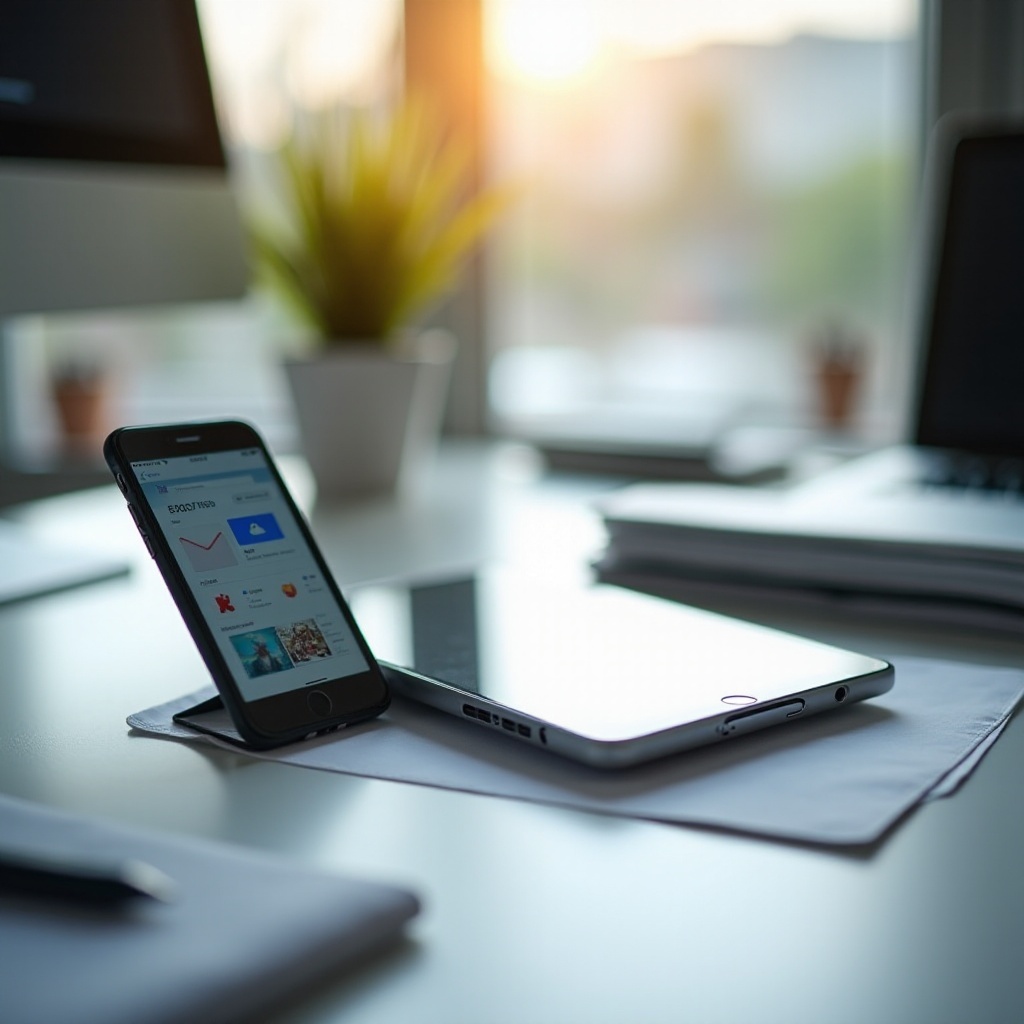Introduction
With smartphones becoming more versatile and powerful every year, one might wonder if owning a tablet is still necessary. Smartphones have become an integral part of our daily lives, helping us stay connected, entertained, and productive. So, do you need a tablet if you already have a smartphone? Let’s delve into the details and help you make an informed decision.

Comparing Smartphones and Tablets
To better understand the need for a tablet, it’s important to compare the features and capabilities of smartphones and tablets.
Screen Size and Resolution
One of the most significant differences between smartphones and tablets is the screen size. Tablets typically range from 7 to 13 inches, offering a larger and more immersive display, which is ideal for media consumption, reading, and multitasking. On the other hand, smartphones have smaller screens, usually between 5 to 7 inches, which makes them more portable but less suitable for tasks requiring a larger display.
Portability and Convenience
Smartphones excel in portability and convenience. They fit easily into pockets or small bags, making them perfect for on-the-go use. Tablets, while portable, are bulkier and might require a dedicated bag or case. If you travel frequently or need a device that you can quickly pull out and use, a smartphone is more convenient. However, for more stationary use, a tablet’s larger screen can be an advantage.
Battery Life
Tablets generally have larger batteries and can offer longer battery life compared to smartphones, especially when used for media consumption or reading. This makes tablets a better option for prolonged use without access to charging facilities. Although modern smartphones come with efficient battery management, their smaller size limits battery capacity.
Cost of Ownership
When considering the cost, smartphones can be more expensive due to their multifunctionality and portability. Tablets, on the other hand, might offer more value if you need a secondary device for specific tasks like reading, watching videos, or browsing the internet. It’s essential to weigh the cost against the benefits you’ll get from owning both devices.
Considering these comparisons, let’s explore specific use cases where having a tablet can be beneficial.
Use Cases for Tablets
Tablets shine in certain areas where smartphones may fall short. Let’s examine some common use cases where tablets offer distinct advantages.
Reading and Media Consumption
For avid readers and media consumers, tablets provide a superior experience. The larger screen enhances readability, making it easier to read e-books, magazines, and web articles without straining your eyes. Watching movies, TV shows, and browsing social media on a tablet can feel more engaging due to the bigger display and better resolution.
Productivity and Office Work
Professionals who need a portable device for productivity and office work can benefit from a tablet. Tablets can handle word processing, spreadsheets, and presentations efficiently, especially when paired with a keyboard and stylus. Apps optimized for tablets often provide a desktop-like experience, enhancing productivity.
Gaming and Entertainment
Gamers will appreciate tablets for their larger screens and better battery life. Many tablet models are designed to handle high-end games, offering an immersive gaming experience. Additionally, tablets can serve as entertainment hubs, providing endless hours of fun with apps, games, and streaming services.
Educational Purposes
Educational applications on tablets can transform learning experiences for students. Interactive apps, online courses, and digital textbooks are more engaging on a larger screen. Tablets are also useful in classrooms, offering a versatile platform for interactive learning and collaboration.
While tablets offer distinct advantages in these areas, having both a smartphone and a tablet can provide a well-rounded digital toolkit.

Advantages of Having Both Devices
Owning both a smartphone and a tablet opens up a range of possibilities and adds convenience to your daily tasks.
Dual Device Workflow
Using both devices simultaneously can enhance your workflow. For example, you can use your smartphone for communication and short tasks, while utilizing your tablet for more complex activities like drafting documents, reading extensive reports, or engaging in long video calls.
Multi-Tasking and Increased Productivity
Having two devices allows you to multi-task more effectively. You can run productivity apps on your tablet while keeping your smartphone for calls and quick interactions. This separation of tasks can boost productivity and help you stay organized.
Enhanced Media Consumption
For media consumption, a tablet can be used for enjoying movies, reading, and social media, while your smartphone handles calls, messages, and notifications. This way, you can enjoy uninterrupted entertainment and still stay connected.
Dedicated Device for Specific Tasks
Having a dedicated device for specific tasks can be more efficient. For instance, use your smartphone for daily communications and a tablet for creative work, gaming, or professional tasks. This clear distinction can help you focus better and make more efficient use of both devices.
These advantages make a compelling case for owning both gadgets. However, several factors must be considered before making the investment.

Factors to Consider Before Buying a Tablet
Before rushing to buy a tablet, assess these key factors to ensure it aligns with your needs and budget.
Assessing Personal and Professional Needs
Evaluate what you need a tablet for. If your work or hobbies involve tasks better suited to a larger screen, like graphic design, video editing, or extensive reading, then a tablet is a worthwhile investment.
Budget and Cost-Effectiveness
Consider your budget. Tablets come in various price ranges, from affordable to high-end models. Weigh the cost against the benefits you expect to gain. If the tasks a tablet would handle can be managed well by your smartphone, it might not be necessary.
Considering Technology Ecosystem (Apple vs Android)
The technology ecosystem you are part of can influence your choice. Apple users may prefer iPads for better integration with other Apple devices, while Android users might opt for Android tablets. Both ecosystems have their own set of advantages and exclusive features.
Future Tech Trends and Updates
Stay updated with future tech trends. Innovations in smartphones and tablets could influence your decision. For instance, foldable smartphones are emerging as a potential hybrid between smartphones and tablets, offering large screens in a compact form.
Taking these factors into account ensures that you make a wise and informed decision.
Conclusion
Deciding whether you need a tablet if you have a smartphone depends on your personal and professional requirements. While smartphones are highly versatile and portable, tablets can offer enhanced experiences for reading, media consumption, productivity, and specific tasks. Assess your needs, consider the benefits and costs, and make an informed choice that best suits your lifestyle and work habits.
Frequently Asked Questions
What are the primary differences between a smartphone and a tablet?
The primary differences include screen size, portability, battery life, and cost. Tablets offer larger screens, better battery life, and are ideal for media consumption, while smartphones are more portable and better suited for communication.
Can a tablet completely replace a smartphone?
No, tablets cannot completely replace smartphones. Smartphones offer greater portability, are more convenient for calls, messages, and on-the-go use. Tablets complement smartphones by providing a larger screen for tasks that benefit from it.
What are the best tablets to buy in 2024?
Some of the best tablets to consider in 2024 include the Apple iPad Pro, Samsung Galaxy Tab S8, and Microsoft Surface Pro 8. Each offers unique features that cater to different needs and preferences.